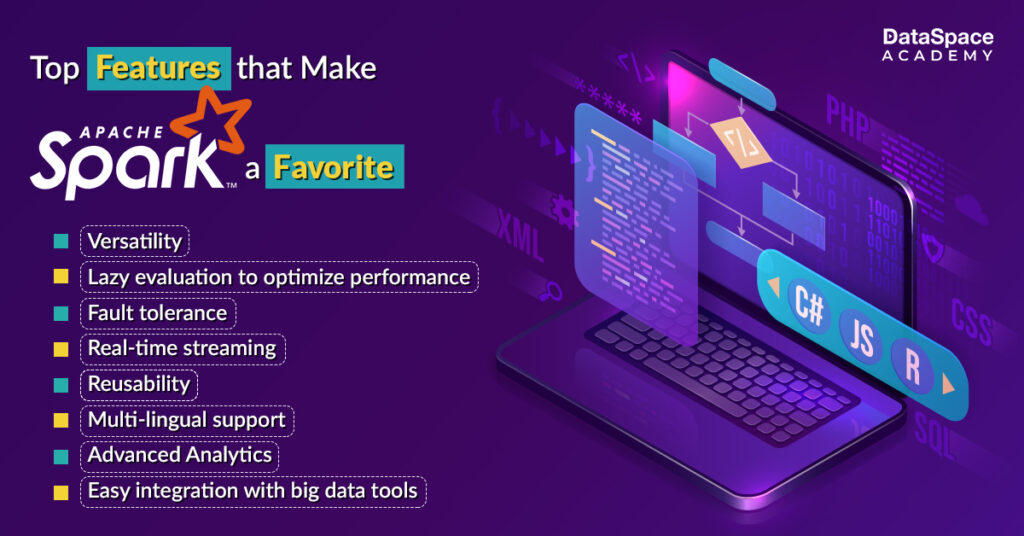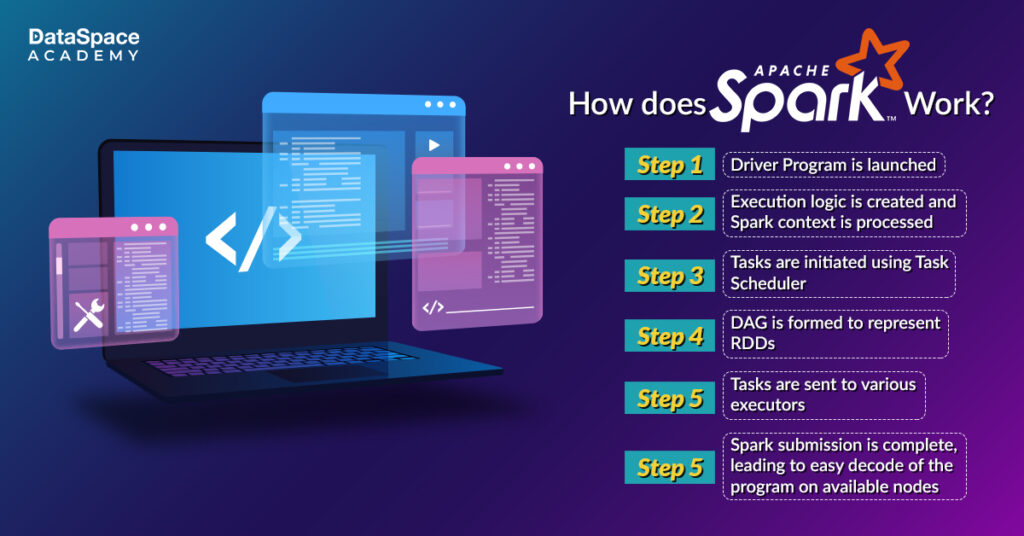Simple, fast, scalable, and unified- these four factors have become the core mantra for efficient & effective big data computations and streamlining workloads.
Apache Spark - an open-source distributed processing system with its unique approach to in-memory data processing- is adding ease to the swift handling of big data tasks. This superior feature amplifies its humongous data processing abilities from multiple sources, surpassing Hadoop MapReduce.
Designed by Matei Zaharia in 2009, Apache Spark was developed at the University of California, Berkeley. The development of Apache Spark was a collaborative approach involving students, researchers, and faculty - with an aim to optimise iterative processing like machine learning and interactive data analysis. Besides streamlining big data workload, Apache Spark provides the development of APIs in Java, Python, and R. This unified big data analytical engine is widely used by industries across various sectors like FINRA, Yelp, and Crowdstrike to name a few.
Apache spark is mainly used for processing vast amounts of data swiftly and efficiently. This open-source framework breaks down big data tasks into smaller pieces and distributes them across a cluster of computers for parallel processing. Spark uses Resilient Distributed Datasets (RDDs), which are fault-tolerant data structures, for seamless recovery from node failures during computation.
Apache spark in big data is recognised for in-memory processing tasks as well. Data stored in memory speeds up the processing times significantly than the traditional disk-based systems.
 Installing Apache Spark
Installing Apache Spark allows data analysts to explore multiple beneficial features. Thanks to its scalable computing capabilities, this analytical engine also includes additional features that have made it popular among tech giants like Apple, Meta, Microsoft, and others. So without wasting any minute, let’s explore the wonder eights of Apache Spark that enable it to outshine its competitors.
Apache Spark is like a supercharged brain for big data processing. It simplifies voluminous data processing tasks into smaller batches and then unleashes a network of computing power to process them simultaneously. With its lightning-fast computations and clever optimisations, Apache Spark transforms mountains of data into actionable insights in record time.
Below is a snapshot of the operational procedure of the leading big data tool.

Exploring some unrivalled benefits of Apache Spark:
Like any other tech peer, Apache Spark also comes with certain limitations such as:
Apache Spark is crucial in the Big Data industry due to its ability to process large datasets within minimal hours. Its versatile capabilities ranging from real-time processing to machine learning, make it an indispensable tool for data professionals. Mastering Apache Spark can unlock numerous opportunities, enabling candidates to excel in high-demand data analysis roles. To learn more about Apache Spark and other data analytics tools, DataSpace Academy’s
Data Analyst course online could be a great resource. The course provides comprehensive theoretical and practical training in analytics tools, equipping students with the skills needed to leverage their full potential.

 Installing Apache Spark allows data analysts to explore multiple beneficial features. Thanks to its scalable computing capabilities, this analytical engine also includes additional features that have made it popular among tech giants like Apple, Meta, Microsoft, and others. So without wasting any minute, let’s explore the wonder eights of Apache Spark that enable it to outshine its competitors.
Installing Apache Spark allows data analysts to explore multiple beneficial features. Thanks to its scalable computing capabilities, this analytical engine also includes additional features that have made it popular among tech giants like Apple, Meta, Microsoft, and others. So without wasting any minute, let’s explore the wonder eights of Apache Spark that enable it to outshine its competitors.

